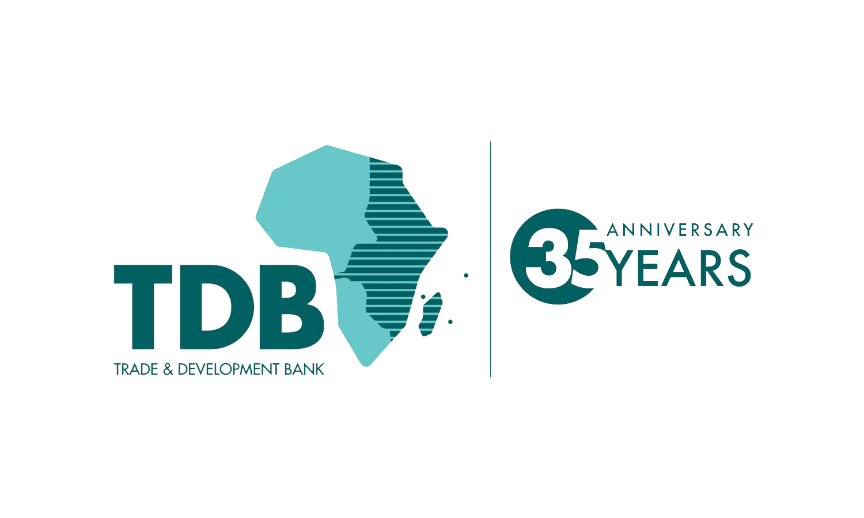Ebene/ Bujumbura, 14 September 2020 – The Eastern and Southern African Trade and Development Bank (TDB) is pleased to announce that its Board of Governors has approved a historic capital increase programme of USD 1.5 billion, alongside a watershed decision to double the current authorized capital stock of the Bank from USD 3 billion to USD 6 billion.
The capital increase programme comes on the back of previous capital increases that were successful and recent decisions to selectively expand the geographic scope of the Bank towards the western seaboard of Africa – in the spirit of the African Continental Free Trade Area (AfCFTA), as well as increased portfolio diversification. It also comes as a new Class C share segment in the capital structure of the Bank is being introduced, in view of attracting, further, non-traditional pools of impact and other types of investors, with an authorized capital stock of USD 1 billion for this segment.
Likewise, these decisions were undertaken in the context of the imperative of innovation in development financing, including blended finance, to give further impetus to the 2030 Agenda for Sustainable Development and Paris Agreement. The increased capitalization will enable the Bank to broaden and deepen its development impact in the years to come, while enhancing its resilience to external shocks such as COVID-19.
In just the past 6 years, following earlier capital structure reforms, TDB’s shareholder base has doubled, with the entry of a range of new sovereigns and institutional investors, notably: several pensions funds from Mauritius, Rwanda, Seychelles and Uganda; several insurance companies and specialized financial institutions, including one from Mozambique; and a globally recognized top African economic think tank.
TDB’s expanded shareholder base now includes non-traditional investors, such as the OPEC Fund, the Arab Bank for Economic Development in Africa (BADEA), and notably Denmark’s International Fund for Developing Countries (IFU) which has just recently approved an additional USD 20 million investment in Class B shares of the capital stock of TDB. Several existing sovereign shareholders, notably Kenya and Rwanda, have also recently subscribed to a total of USD 125 million in new Class A shares, alongside increased subscriptions in recent years by several investment-grade shareholders, including the African Development Bank Group, the People’s Bank of China and the Republic of Mauritius which have been increasing their stakes.
Commenting on the historic decisions, Admassu Tadesse, TDB’s President and CEO, said: “it is clear that our shareholders and strategic partners are more resolved than ever to boost the capacity of this fit-for-purpose specialist bank with a proven track record in leveraging growing volumes of capital and suitable funding. These decisions will enable us to continue advancing our regional economic integration agenda, and further synergize with allies to accelerate our progress towards the achievement of SDGs and combat against climate change”.
The capital increase decision also comes against the backdrop of a string of new and expanding strategic funding, cooperation and risk-sharing partnerships with significant policy banks such as AfDB, The World Bank, MIGA, BADEA, the OPEC Fund, AFD, KfW, CDB, EIB, CHEXIM, the CDC Group, JBIC, KEXIM, CDP, OeEB, FinDev Canada, Exim Bank of India, IDC, Norfund, and others, which this year only, has endowed TDB with an additional USD 2 billion in long-term financing. TDB also enjoys strong trade finance and other cooperation with significant commercial banks notably Citibank, Commerzbank, Credit Suisse, ICBC, Emirates NBD, FAB, Mizuho Bank, Mashreq Bank, MUFG, SMBC and Standard Chartered Bank.
The Bank’s strong growth and institutional transformation have been underpinned by the establishment of centres of excellence in critical areas such as risk management, treasury, human capital management, and investor relations and bolstered by the achievement of investment-grade ratings. Its lending, syndications and co-financing operations have also been expanded and sharpened with a hybrid coverage-product model and specialized units.
Likewise, TDB has formalized its group structure. The latter offers an innovative and dynamic platform for new partnerships and special purpose funds, as well as specialized institutions such as the new Trade and Development Fund (TDF) and the TDB Academy which will serve to drive expanded concessional and blended financing, as well as targeted capacity building interventions.
The significant decisions taken by the Board of Governors will boost TDB’s capital, extend its reach and strengthen its institutional framework, enabling it to sustainably deliver greater development impact as well as value to its various stakeholders.
About TDB
Established in 1985, the Eastern and Southern African Trade and Development Bank (TDB) is a multilateral, treaty-based, investment-grade development financial institution, with assets of US$6.7bn. The Bank’s mandate is to finance and foster trade, regional economic integration and sustainable development through trade finance and project and infrastructure finance.
www.tdbgroup.org
Media contacts
Anne-Marie Iskandar, Senior Communications Officer
Corporate Affairs and Investor Relations
Trade and Development Bank
Anne-Marie.Iskandar@tdbgroup.org

 TDB SHAREHOLDERS APPROVE A RECORD CAPITAL INCREASE PROGRAMME OF USD 1.5 BILLION
TDB SHAREHOLDERS APPROVE A RECORD CAPITAL INCREASE PROGRAMME OF USD 1.5 BILLION